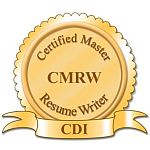And what are you getting? And for that matter, what are you giving when asked?
In the past few months, I’ve had two people hand me a product (virtually or in person) with no context or reference to their attachment or affiliation, what I was viewing or why I would be interested. The only guidance I got was the equivalent of a generic, “So. What ‘cha think?”
A few months ago, Karen Swim and I were having an email conversation about feedback. She wisely observed, “When you ask for an opinion, many people will look for something to pick apart just so they feel ‘valued.'”
Guess what I did in both instances when I was asked for feedback? Correct. I found a way to give a negative “pick-apart” initial response. Turns out, both products were near and dear to the asker’s heart. My natural propensity (like it or not) to “offer” value through negative feedback and my perception “we were all picking apart the product” ended up in me doing some back pedaling.
Is it wrong to go to the negative first when asked to give feedback? Probably. But, if we’re honest, we’ve all done it. More than once. Is it wrong to ask for feedback without any information and then be dismayed when what you get is not what you wanted? Probably. But, we all do that too.
Transition this scenario to the job seeker. You’ve recently invested in working with a career professional or invested hours and hours researching, writing and tweaking your resume. You show it to your friends. You excitedly ask, “So. What ‘cha think?”
Let’s keep in mind the people you’re asking, usually:
– Haven’t job searched recently
– Never had a role in the hiring process, ever
– Used to work in HR … 20 years ago
– Read a book about resumes, in college, 8 years ago
– Aren’t quite sure what you do for living … something to do with plastics*
– Have no idea about your career goals
– Don’t know the preferences for your target industry
– Have never worked in the size company or the industry you’re targeting
– Knows you’re changing careers, but not sure of the specifics
I could go on. (And on and on and on …)
Think about it. You’ve asked the simple “What ‘cha think?” question to a group of friends, relatives and acquaintances with widely-varying career and job search backgrounds. Add to that, they may not be up to speed on the specifics of your search. You’ve given no context to what you’re looking for to a group of people who want to feel valued by you.
The input starts:
– I heard you’re supposed to have an objective. Where’s the objective?
– It’s too many words.
– It’s not enough words.
– It’s too detailed.
– It’s not detailed enough.
– I heard bullets are supposed to be round, not square.
– They’ll know what you mean. You don’t have to explain it.
– It should only be one page.
– Shouldn’t it be more than page?
– I’m not sure about the format. It’s different than every other resume I’ve seen.
You’re on top of the world, so proud of your new document. You ask for (unguided) feedback from friends and poof! in a second you’re second guessing everything you know and your confidence is waning. (Multiply that effect for unemployed job seekers.)
Did anyone intend to burst your bubble? Did you expect everyone you spoke with to find something “wrong” with your career documents? Of course not. On both counts. But it happens. Time and time again.
I worked with a laid-off salesman a while back. He LOVED his resume; was excited to launch the search. He felt on top of the world. Then he showed it to 10 people. Guess what? Ten people had twenty different opinions. It took almost an-hour-and-a-half to explain, validate or debunk what he had been told. What little confidence he had was shot, his head was spinning and he wasn’t sure what to do or where to turn.
This most likely could have been avoided had he asked for feedback differently: “I really like my resume. I engaged with a professional who helped me focus on a specific target using a strategy successful in 2011. (Or I’ve done extensive research … ) “Would you mind reading it over for clarity, please?” Or, “You know my career quite well. I’m trying to spotlight this set of skills as I transition industries. Will you please read my resume and see if you remember anything I did that might be a better example?” Or, “Would you proofread this for me please? I’m good with the content and format. I just want a second set of eyes to catch any errors I may have missed.”
Each of these examples sets the expectation for the type of input requested. The need for your friend, associate or whoever to figure out what you need and in turn, how to be valued is eliminated. You’ve asked a specific question. You now have the opportunity to receive solid input. If you’re unsure about the input, ask your trusted career professional about it (or spend time doing research to determine validity) and see if what you’ve heard fits with your specific goal.
Going forward, I’ll do a better job of asking clarifying questions before offering off-the-cuff responses. Hopefully my faux pas will help you remember to clarify what was asked or share what you expect in asking. And do remember, everyone has an opinion. Have the confidence to sort through the input and pick and choose what works for you – not try to incorporate everything. (Your head will explode.) As a good friend told me recently, “I might ask for your opinion. It doesn’t mean I’m going to use it.” Have the confidence to ask. Also have the confidence to ignore.
Snark is easy. Thoughtful constructive feedback takes a bit more effort on both parts.
~~~~~~~~~~~~~~~~~~~~~~~~~~~~~~
PS: Does asking for clarification mean I (or you) won’t give an honest opinion? PUH-lease. In my case, “If you don’t want to know the answer, don’t ask the question.” However, when knowing the goal and context of the question we all can be much more focused on solid feedback than offering misguided answers to questions that weren’t asked. That goes for people attempting to help you in your search too.


 Link to this page
Link to this page













[…] Bugni writes that asking for opinions in a broad, general sense can actually be hurtful. I worked with a […]
[…] « How are you asking for feedback? […]